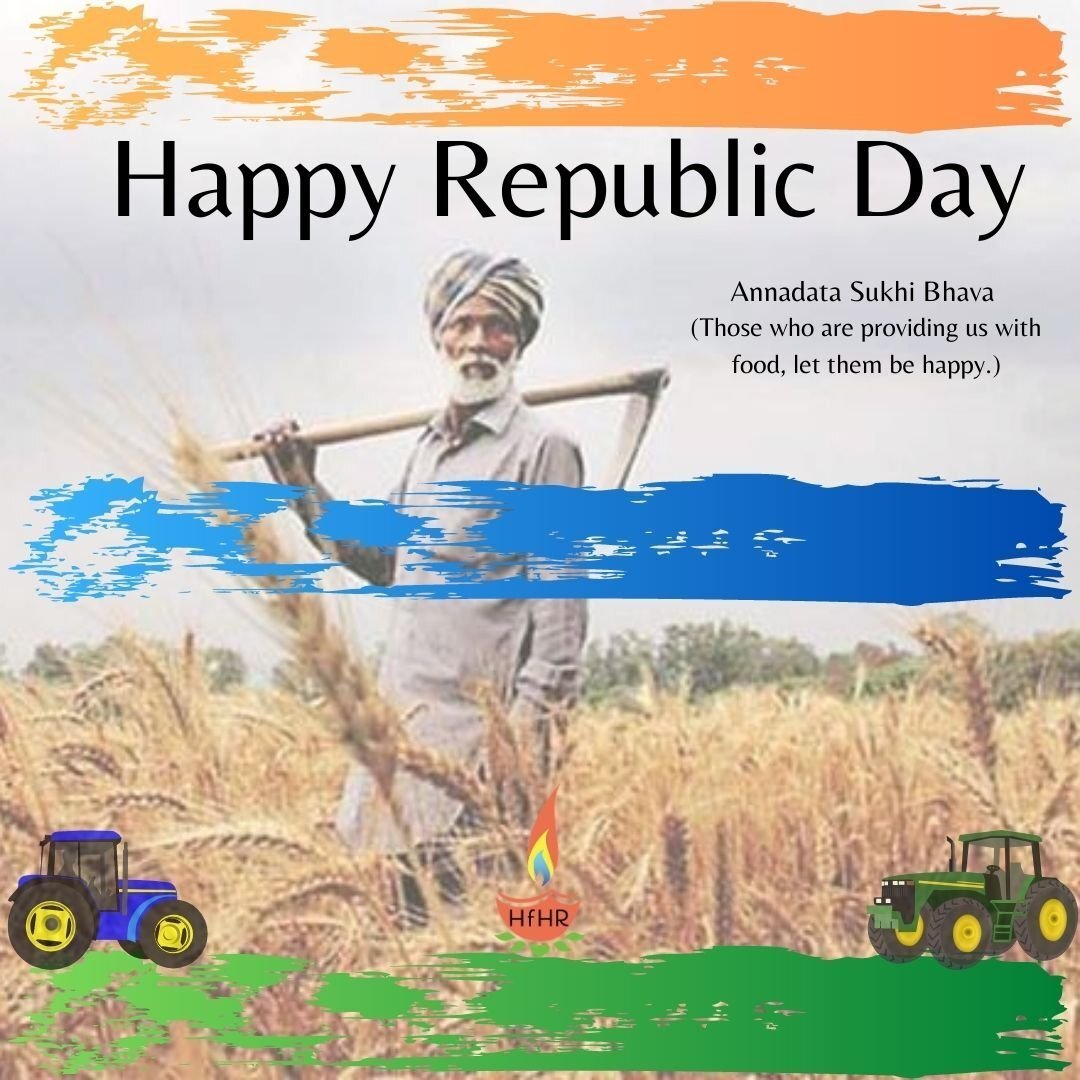Supporting Our Farmers on Republic Day: A Political Appetite
By HfHR Board Member Swati Garg
NOTE: The Hindus for Human Rights blog is a space for a healthy exploration of ideas pertinent to our mission. The views and opinions expressed in this blog are those of the author and do not necessarily reflect the official policy or position of Hindus for Human Rights.
Food is usually a way of sustenance, of appeasing our palette, but in Indian society, it is not just a matter of daily existence, but also a way of defining one’s social station. An elaborate feast for a guest is a sign of honor. The ingredients we use, the dishes we cook, all have subtle meanings behind them, a reflection of our attitudes. The richer, more elaborate the feast is, the higher is one’s status. An offering for God is usually prepared in ghee (clarified butter) while lowly oils may be used for the lesser beings or for the children of a lesser God.
When one gets to eat may also be a representation of their standing in the social order. The guests are served first, while in many families the women folk eat last. Many households have separate cutlery for the help, and some people do not even eat or drink food which was touched by a person from a supposedly lower caste, or different religion. Daily needs of water and food have been a scourge for eons.
Food is not merely a means of defining a pariah, but a grim reminder of the looming pain in their lives. In the event of a death in one’s family, tradition may dictate that no food is cooked in the household for thirteen days (a period of mourning), and any food brought in by relatives or friends should be bland in nature. Society norms decide for us how we mourn and express our ineffable pain. This diktat lasts a few days, but not too long ago, widows were condemned to eat insipid food for the rest of their lives, lest they forget the insurmountable loss of their husband.
In 2017, farmers from Tamil Nadu staged a protest in the capital, with dead mice and snakes in their mouths, eating their own excreta, drinking their urine to draw attention to their plight. They hoped to guilt the conscience of a populace that thrives on schadenfreude and strengthens its position by inflicting privations on the marginalized. That explains the collective outrage and horror over images of farmers eating pizza at “Singhu Border” in the ongoing farmers' protest.
The indignity of determining who can touch food, what cutlery one should use, where they should sit, or with whom one can dine has now extended to dictate what one should eat, lest they seem equal to us. Yet we chant “Annadata sukhi bhavo” (Blessings for the provider of food).
On this Republic Day, as farmers of our country march throughout india, reclaiming the idea of our republic “for the people, of the people, by the people”, we the proverbial ‘argumentative Indians’ who are never at a loss of words — except when it's needed — should stand in solidarity with our farmers and raise our voice to uphold the values of the constitution that confers equality of status and opportunity to each of its citizens, and assures the dignity of every individual as we try to awake our republic from its stupor.

